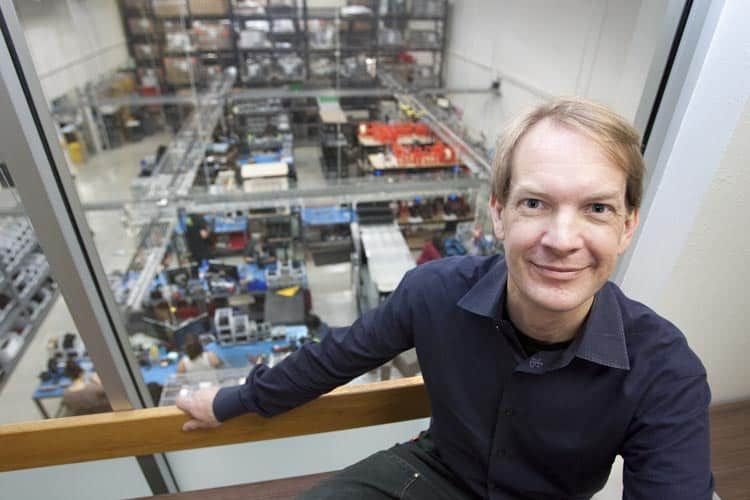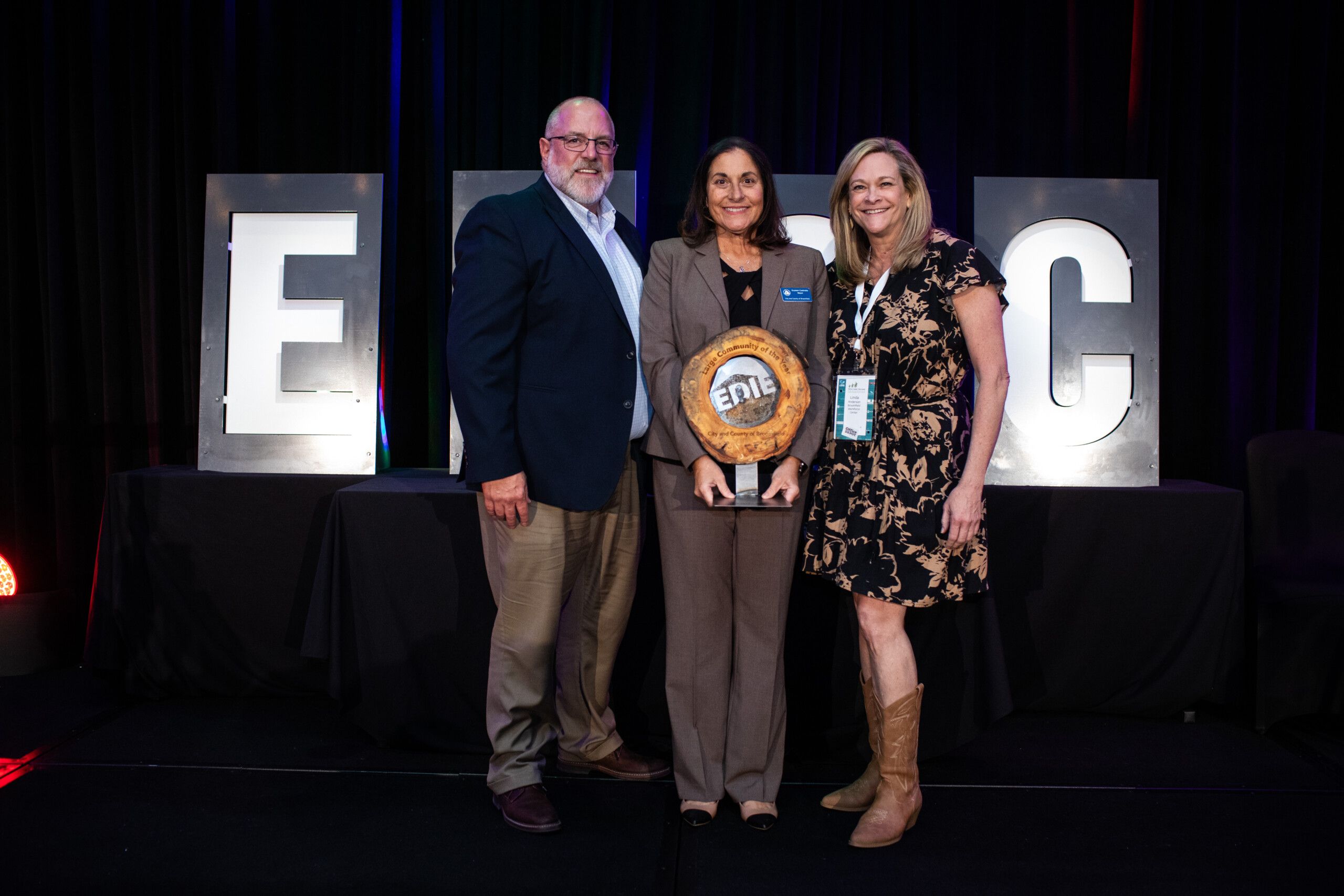Aleph closes Loveland operations, merges into new company
Up to 13 workers to transfer to North Dakota

LOVELAND — In the end, the challenges for formerly Loveland-based Aleph Objects reached dimensions it couldn’t handle. The company, sold late last year, has shut down production in Loveland and its new owners have moved operations to Fargo, North Dakota, where its owners now operate.
Analysts say production of its signature product, the LulzBot desktop 3D printer, will continue to have a bright future — but not in Loveland.
Work ended just before Christmas at Aleph’s plant at 626 W. 66th St. in Loveland, which now sports a for-sale sign. Soon, as many as 13 of Aleph’s employees will transfer to Fargo where they’ll work alongside about 50 newly hired workers for Fargo Additive Manufacturing Equipment (FAME 3D). That new firm bought out Aleph in November for an undisclosed price.
SPONSORED CONTENT
Before its financial problems, Aleph employed more than 100 people in Loveland, 91 of whom were laid off in October.
“The company’s strong belief in open-source software and hardware gave it a positive ethos among its users but may have hurt its economic competitiveness,” said industry analyst Ray Huff, associate engineer for Fort Collins-based Wohlers Associates, which for more than two decades has produced an annual report each March that reviews the 3D printing industry worldwide.
There was certainly little problem with consumer acceptance of Aleph’s products, Huff said.
“Wohlers Associates estimates that more than half a million desktop 3D printers were sold in 2018 — that is, 3D printers that sell for under $5,000,” Huff said. “LulzBot has been a prominent brand in this industry for several years, and is beloved among the community.
“Members of the U.S. military commented to us that they loved LulzBot machines,” he said. “They were deployed at bases and in the field. They were tested for producing functional drone components, replacement parts on military equipment, and even on-demand weapons production. The military leans heavily toward American-made equipment, so Aleph was one of the few main suppliers of 3D printing equipment for them.”
Aleph’s LulzBot and TAZ desktop printers boasted prices that made them affordable for businesses, schools and libraries, Huff said.
In fact, a lot seemed to be coming up roses for Aleph Objects.
The company was founded by Jeff Moe in 2011 in his home west of Fort Collins. Moe soon moved Aleph Objects to Loveland, and by 2016 he was being honored as Emerging Entrepreneur of the Year at BizWest’s Bravo! awards ceremony. His company led the pack of Larimer and Weld counties’ fastest growing private companies that year, honored at BizWest’s Mercury 100 Northern Colorado awards ceremony for posting 806 percent growth over the previous two years. That growth also propelled Aleph Objects to 122nd place on Inc. magazine’s list of the fastest-growing private companies in America. That was tops among the 28 companies from the Boulder Valley and Northern Colorado that made the Inc 5000 list, and second in Colorado, only trailing Aurora-based Real Estate at No. 103.
According to Wohlers Associates’ 2019 industry report, Aleph reported sales of about 9,000 machines a year in both 2017 and 2018. The report said a total of 591,079 printers sold in that class in 2018.
As late as last spring, Aleph continued to launch new products. The company unveiled its new TAZ Pro printer on April 1 in Germany, and introduced its TAZ Workhorse a month later. Last June, Aleph announced it was partnering with Pennsylvania-based startup company Fluidform Inc. to find ways to use its LulzBot 3D printers to produce living tissue for organs and other biological material.
Competition was fierce, however, and some of its competitors turned away from the open-source philosophy. By fall, Moe was citing cash-flow issues, telling the 3D Printing Industry website that tariffs on Chinese goods imposed by the Trump administration, including electronic motors and power supplies not made in the United States that Aleph was importing, were creating challenges for the company.
After the layoffs were announced as part of what an Oct. 11 Aleph news release called “streamlining operations,” Moe told 3DPrintingIndustry.com that the tariffs were not “what did us in” but were just “one more straw on the camel’s back.”
Huff, however, noted that the company “struggled with its leadership as well.” Grumblings among the 3D industry on social media alleged Aleph’s “lack of innovation” and complained about the pricing of LulzBot 3D printers.
The October layoffs prompted a class-action lawsuit from former worker Zachary Hergenreder, who claimed that Aleph Objects violated the federal Worker Adjustment and Retraining Act by not giving employees 60 days’ notice that they were being laid off. The WARN Act requires companies with more than 100 employees to file advance notices with their state labor departments when laying off more than half of their workforces at a single site. Aleph didn’t file such a notice with the Colorado Department of Labor and Employment, and Hergenreder alleged that Aleph owes back pay and accrued vacation pay to him and the other former workers.
Although 16 employee reviews on the Glassdoor website from 2017 to 2019 might not be considered representative of the views of the majority of Aleph’s workers, Hergenreder cited some that described Aleph Objects’ working environment as “restrictive, controlling, negative” and “chaotic.”
In a response filed Dec. 6 with the U.S. District Court of Colorado, Aleph denied the allegations, claiming that at the time of the layoffs it was in the middle of seeking new investors and new business leads — an exemption the WARN Act allows because filing a WARN notice could harm those types of attempts to save a struggling company. Aleph told the court that some of the laid-off employees were hired on a temporary basis and thus weren’t eligible to join the class-action suit. It contended that the laid-off workers’ termination packages would offset the back wages they claimed they were owed, and asked the court to dismiss the lawsuit with prejudice.
At press time, no trial date or settlement had been announced.
As what’s left of Aleph Objects wrapped up its Loveland presence, its equipment — and those 13 employees — were being moved to Fargo, where Grant Flaherty, who was named president and chief executive of Aleph in October 2018, will retain his position with FAME 3D.
“LulzBot is one of the core leaders in the desktop 3D printing industry. It’s an organization filled with intelligent, innovative people and solutions that are changing the opportunities for manufacturing and medical markets,” Flaharty said in a press release. “We couldn’t stand by and watch that type of innovation to go unrealized.”
According to KFGO radio in Fargo, the new company plans to hire an additional 50 workers to staff its plant, which will be located in a 62,000-square-foot former Vanity Clothing warehouse — a space much larger than Aleph’s Loveland plant — that sits in one of North Dakota’s 25 “opportunity zones” that were designated under the 2017 federal Tax Cuts and Jobs Act.
Venture capitalist Ron Bergan, who had been owner and chief executive of Fargo Assembly Co., a manufacturer of electrical wiring harnesses for 42 years before selling it in 2017, started the limited-liability corporation FAME 3D for the purpose of buying Aleph Objects’ assets.
“This is an exciting day for Fargo and the entire region as we welcome a business with cutting-edge technology and dozens of jobs to North Dakota to build upon the state’s flourishing entrepreneurial ecosystem,” said North Dakota Gov. Doug Burgum on Dec. 18 when he announced the birth of the new home of LulzBot 3D printers. “We’re grateful to Ron for continuing to believe in North Dakota’s people and invest in our economy.”
Meanwhile, Moe is staying in Larimer County and has founded Fork Sand Inc., a company that lists a Masonville address. Its website describes it as “a free-software, open-source hardware company developing secure computing devices that guard users’ privacy.”
“We all know that there is a lack of computer security,” Moe told BizWest in December. “Fork Sand will be working for secure, auditable computer security based on open-source architecture.”
LOVELAND — In the end, the challenges for formerly Loveland-based Aleph Objects reached dimensions it couldn’t handle. The company, sold late last year, has shut down production in Loveland and its new owners have moved operations to Fargo, North Dakota, where its owners now operate.
Analysts say production of its signature product, the LulzBot desktop 3D printer, will continue to have a bright future — but not in Loveland.
Work ended just before Christmas at Aleph’s plant at 626 W. 66th St. in Loveland, which now sports a for-sale sign. Soon, as many as 13 of…
THIS ARTICLE IS FOR SUBSCRIBERS ONLY
Continue reading for less than $3 per week!
Get a month of award-winning local business news, trends and insights
Access award-winning content today!





